Chemistry

Educators and Parents, Sign Up for The Cheat Sheet
Weekly updates to help you use Science News Explores in the learning environment
Thank you for signing up!
There was a problem signing you up.
-
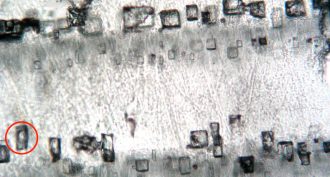 Earth
EarthOxygen-rich air emerged super early, new data show
Scientists had thought animals were slow to emerge because they would have needed oxygen-rich air to breathe. A new study finds that plentiful oxygen may have developed early. So animals may have been late on the scene for another reason.
-
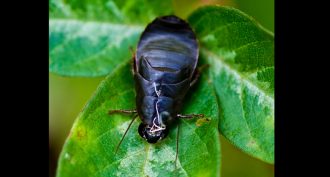 Chemistry
ChemistryGot milk? Roach milk could be a new superfood
Scientists have just figured out the recipe for cockroach milk. And that could be a first step toward making it part of the human diet. Yum!
By Dinsa Sachan -
 Chemistry
ChemistryE-cigs create toxic vapors from harmless e-liquids
New study finds a primary source of toxic vaping compounds. It’s the heat-driven breakdown of the liquids that hold nicotine and flavorings. And older, dirtier e-cigs make higher amounts of the toxic chemicals.
By Janet Raloff -
 Chemistry
ChemistryGasp! At the movies, your breaths reveal your emotions
Researchers took air samples as they screened movies. What people exhaled were linked to film scenes’ emotional tone, they found.
-
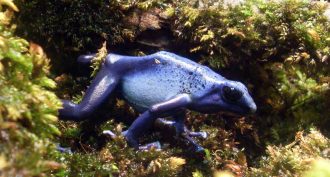 Chemistry
ChemistryScientists Say: Toxin
It is safe to refer to any poison as toxic. But while all toxins are poisonous, most poisons are not toxins.
-
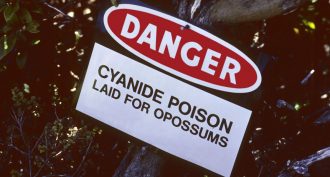 Chemistry
ChemistryScientists Say: Cyanide
Cyanides are poisonous. But they are more than that. This group of compounds is used in everything from mining to capturing fish.
-
 Tech
TechConcrete science
Teen researchers are exploring ways to strengthen this building material, use it for safety purposes and use its discarded rubble.
By Sid Perkins -
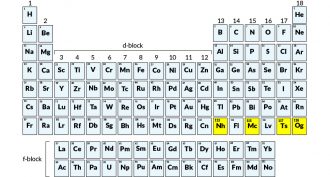 Chemistry
ChemistryThe newest elements finally have names
Nihonium? Tennessine? These aren’t body parts or medicines. They’re among the names just given to the four newest superheavy elements.
-
 Chemistry
ChemistryScientists Say: Acidification
When a solution becomes more acidic, it’s acidifying. And that’s not always a good thing.
-
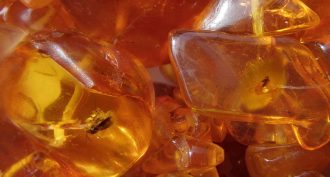 Fossils
FossilsIdentifying ancient trees from their amber
A Swedish teen’s analyses of a sample of amber may have uncovered a previously unknown type of ancient tree.
By Sid Perkins -
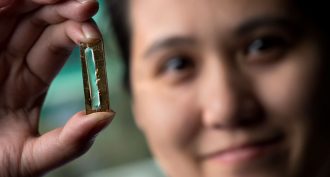 Materials Science
Materials ScienceNanowires could lead to super-long-lived battery
Scientists have long been looking for ways to make rechargeable batteries that last forever. They now may be close. Their solution: gel-dipped nanowires.
By Lela Nargi -
 Health & Medicine
Health & MedicineKeeping samples cool without electricity
When vaccines and blood get too warm or cold, they can become useless. Two teens invented ways to keep their temperatures just right, no matter where they are.